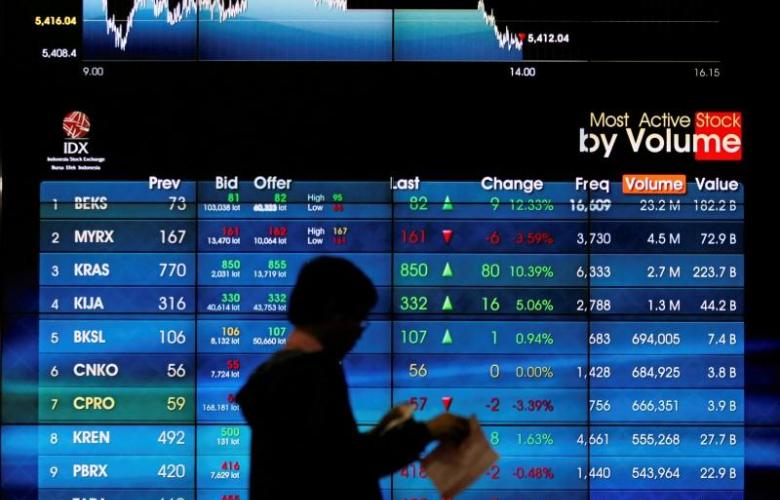Tito Sulistio, President Director of Indonesia Stock Exchange (IDX), says recent records of a strong Jakarta Composite Index (JCI) indicates domestic investors are confident in the Indonesian economy and the domestic capital market.
"The stable exchange rate of the rupiah against US dollar at IDR13,570 based on Bank Indonesia's middle rate of exchange per day, as well as domestic inflation rates kept below four percent as of September 2017 contributed to the rise of domestic investors' confidence in the economy, particularly the Indonesian capital market," he said.
The strong performance of listed companies or issuers in the third quarter of 2017 was one of the factors contributing the the JCI's new high. If you compare Indonesia with other countries' stock markets, in the last 10 years, the JCI has recorded the best performance.
"However, the responsibility of IDX and all parties to keep the Indonesian Capital Market remains positive has not been completed," he said.
Looking at the activity of foreign investor transactions that are in net selling position throughout the year, the value reached IDR17.88 trillion year-to-date. But this is offset by domestic investors buying, he also highlighted.
Price Waterhouse Cooper’s ‘The World in 2050’ report sets out their latest long-term global growth projections to 2050 for 32 of the largest economies in the world, accounting for around 85% of world GDP. They found:
- The world economy could more than double in size by 2050, far outstripping population growth, due to continued technology-driven productivity improvements
- Emerging markets (E7) like Indonesia could grow around twice as fast as advanced economies (G7) on average
- As a result, six of the seven largest economies in the world are projected to be emerging economies in 2050 led by China (1st), India (2nd) and Indonesia (4th)
- The US could be down to third place in the global GDP rankings while the EU27’s share of world GDP could fall below 10% by 2050
- But emerging economies need to enhance their institutions and their infrastructure significantly if they are to realise their long-term growth potential.
This year, foreign investors controlled only 36 percent or IDR514 trillion, but domestic investors have controlled 64 percent or Rp899 trillion worth of transactions on the IDX.
"IDX is optimistic if we continue to develop capital market literacy, especially to retail investors, the Indonesian Capital Market will be stronger," he added.
The market capitalization of IDX also broke its all-time high of IDR6,666 trillion. Today's transaction value stood at IDR8.69 trillion, a transaction volume of 9.15 billion units of shares with a total trading frequency of 349,790 transactions.
But this economic momentum slowed in the third quarter, with GDP growth up only 5.1% annually. Fixed investment and government spending accelerated, and household spending remained stable at the previous quarter’s reading, and inventories dragged on the result. The robust growth in investment was supported by an improvement in the business climate. The government’s reforms and infrastructure program have also impacted the climate. The fourth quarter appears to have a soft start according to recent data, with the manufacturing PMI falling in October and ease in consumer confidence. The parliament approved the 2018 budget at the end of October with the revised 2.92% deficit planned for 2017 larger than the targeted deficit of 2.19% of GDP.
Sources: Neutral News, Focus Economics, Price Waterhouse Cooper
Similar to this:
Bali’s promotion on the international stage set to boost the economy
Indonesia's tourism industry helping real estate businesses
Indonesia's economy expands, up 5 per cent in the second quarter





